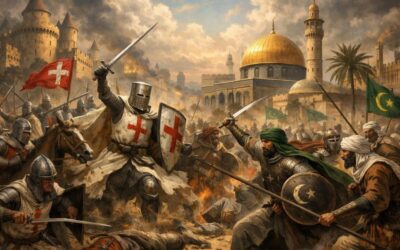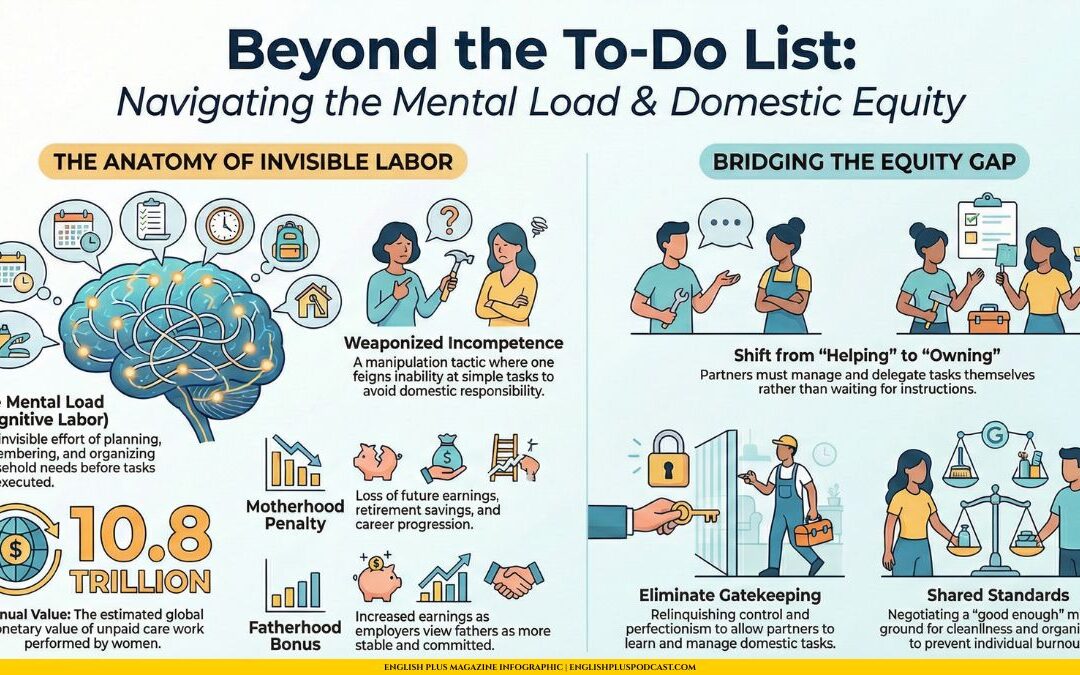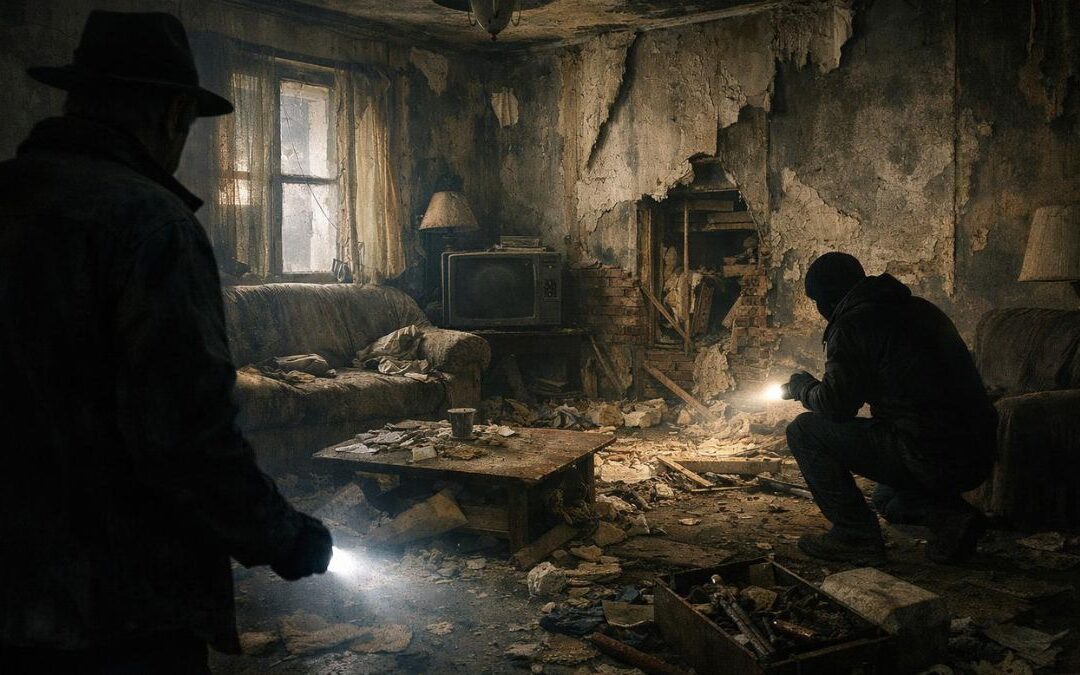SparkCast Episode
The SparkCast episode is not just a reading of the article below; it’s a lively discussion based on the topic of the article, so you don’t want to miss it!
[ppp_patron_only level=5]
Byzantium’s Reinvention_ A New Roman Empire Rises Transcript: Click to Open
Byzantium’s Reinvention A New Roman Empire Rises
Imagine having to follow like the greatest act in history. How do you even measure up? Yeah, how do you adapt? How do you survive let alone thrive when everyone just expects you to? Well to crumble exactly. We’re about to take a deep dive into one of history’s most audacious acts of reinvention the rise of the byzantine empire Welcome to a new spark cast from english plus podcast.
It’s really remarkable Isn’t it how they managed to not just you know, endure after the west fell apart But to profoundly evolve and redefine what roman even meant totally the whole story is Uh, it’s basically a master class in strategic adaptation building something completely new from well the ashes of the old Okay, let’s unpack this a bit for you picture this. Yeah, your older sibling is this global superstar powerful famous? Incredibly influential right and then poof they’re gone suddenly the spotlight swings right onto you Everyone’s looking wondering can they fill those massive shoes? That’s a great analogy That’s pretty much the colossal challenge the eastern roman empire faced when the western half started to crumble Yeah, and byzantium story. It isn’t just about scraping by about survival It’s really a story of brilliant reinvention And if you zoom out you see while the western empire was, you know, decaying dealing with invasions internal chaos The east was actively charting a whole new course It really makes you think doesn’t it? What does it actually take for a civilization? To not just weather that kind of collapse but to actively build a dynamic new future One that lasts for what a thousand years exactly a thousand years What always gets me about this period is where byzantium story really kicks off You have emperor constantine early fourth century right constantine the great and he makes this incredibly audacious decision.
I mean Really bold instead of keeping the capital in rome the heart of the old empire Yeah, he moves it hundreds of miles east to this ancient greek city byzantium Which he then rebuilds magnificently and renames constantinople. It seems counterintuitive at first glance maybe Leaving rome. Well, that’s the question isn’t it? What was the driving force? Why do that? Well, the genius of it I think lies in the sheer strategic foresight constantinople’s location It wasn’t just convenient.
No, it was foundational Absolutely key to its long-term resilience. Think about it Perfectly positioned right at the crossroads of europe and asia the trade routes. Yeah, exactly the trade routes control of the bosphorus strait It wasn’t just planned as a new capital city.
It was conceived as both a fortress and a massive trade hub Ah, okay, which gave it this inherent advantage, especially compared to the vulnerabilities that old rome was facing by then So it wasn’t just moving house. It was a declaration a new rome built for the future precisely not clinging to the past But looking ahead, okay, so beyond just the amazing location. It makes you ask What else was in byzantium’s? Let’s call it the secret sauce What allowed it to not just survive but really flourish for a millennia, right clearly wasn’t just one single thing Was no absolutely not it was definitely a multi-pronged approach like uh, um a perfectly balanced recipe you could say Okay, like what well first you have to talk about its geography beyond just the trade routes.
I mean the city itself Constantinople was surrounded on three sides by water right natural defenses and then protected on the land side by these legendary Massive walls the theodosian walls just incredibly difficult to conquer for centuries. Okay, so defensible. What else then? There’s the strong economy and crucially administration They controlled those vital trade routes.
Yes, but they also had an incredibly stable currency The gold solidus. Oh, yes, which wasn’t just stable It was like the international currency for centuries widely accepted trusted that gives you huge economic power Okay, fortress finance and third they’re clever diplomacy They were masters of political strategy often playing enemies against each other, you know, like geopolitical chess Exactly like geopolitical chess it saved them countless wars conserved resources. Very very smart.
Wow Okay, so a fortress a financial powerhouse and a diplomatic chess master that’s that’s quite the combination but maybe the biggest shift The thing that really set it apart from old rome was cultural And spiritual I think you’re right. That’s a huge part of the identity Byzantium wasn’t just a christian empire. The emperor was seen as what? God’s chosen representative on earth.
Yes, precisely the basilius god’s vice regent This fusion of church and state it created this incredibly powerful sense of unity of purpose And it’s really a testament isn’t it to how a shared belief system? Can fundamentally shape a society this idea of a divine mandate for the emperor and for constantinople itself the god-protected city Exactly. It wasn’t just some abstract idea It gave the people a profound reason to fight to endure hardship to believe in their city You see that reflected in the art and architecture too, right? Like the hygieia sophia Oh, absolutely while old rome had its pantheon and temples to various gods byzantium was defined by the soaring domes of its churches Hygieia, sophia is the ultimate symbol of that. So this unity of purpose It was a major source of strength forging a collective identity that lasted ages Undeniably, though it wasn’t always smooth sailing internally because of it that actually leads to a good point That sense of divine purpose sounds incredible unifying against outsiders.
Sure, but did it ever become? A double-edged sword internally. Oh, absolutely. You’ve hit on something crucial there like rigid religious orthodoxy Yeah, wasn’t that also a source of really intense conflict within the empire persecution even yes, definitely While it provided unity against external threats internally theological debates could be brutal brutal How well arguments over doctrine like the nature of christ could and often did erupt into actual riots in the streets? Sometimes they even led to emperors being deposed or uh blinded Wow, it really shows that even a powerful unifying belief system has its own complexities its potential for division Especially when it’s so deeply intertwined with political power, right? Okay, moving forward a bit into the 6th century You really can’t talk about early byzantine glory without mentioning a certain power couple Ah, yes, justinian and theodora emperor justinian the first and his brilliant wife empress theodora Justinian, I mean talk about ambition.
He was dreaming of restoring the full glory of the roman empire, right? Launching these massive military campaigns huge campaigns trying to reconquer the west north africa italy Some temporary success there too, but maybe his most lasting legacy was legal He commissioned this massive codification of roman law The the corpus juris civilis the body of civil law, right? Think about it taking centuries of messy sometimes contradictory roman laws and organizing them all into one clear foundational legal text It was an immense undertaking and it wasn’t just like an administrative tidy up This thing became the bedrock for legal systems across europe for hundreds and hundreds of years Its influence is staggering truly but theodora Wow, she was something else wasn’t she not your typical empress not at all. Her background was Unconventional to say the least a former actress from the lower rungs of society but incredibly intelligent and tough Justinian’s most trusted advisor, wasn’t she? Absolutely. Their power wasn’t just in their titles.
It was in their partnership their synergy his grand vision her uh Razor-sharp pragmatism probably honed by that very likely She famously rallied him during the nico riots when he was ready to flee basically saved his throne Wow, and her influence on actual policies, especially things like women’s rights social welfare It shows that real resilience real leadership can come from unexpected places So together they really embodied that dynamism that bold ambition of byzantium’s early golden age. It really did Reshaping the laws the military reach the very look of constantinople with projects like hagia sophia So thinking about all this, what does it mean for you our listener? Byzantium it seems like a place of just dazzling contradictions. That’s a good way to put it dazzling contradiction on one hand.
It was this beacon of classical learning meticulously preserving ancient greek and roman texts philosophy science literature Stuff that might have just vanished. Otherwise a crucial bridge for knowledge yet at the same time. It was a place of incredibly rigid religious orthodoxy as we said and Intense often brutal political intrigue emperors blinded exiled and it’s wild power was precarious And you see the contradictions elsewhere, too, right? You have this stunningly beautiful art the shimmering gold mosaics the intricate icons that feel almost otherworldly deeply spiritual art and yet the same populace the same society absolutely loved the Violent chaotic chariot races in the hippodrome.
Oh the hippodrome factions the blues and the greens. It wasn’t just sport It was deeply political and social. Yeah riots could start there.
So it’s more than just an arena It was this major social and political hub where emperors connected or you know clashed with the people definitely So yeah complex vibrant utterly unique a civilization That was truly a bridge between the ancient world and the medieval even modern worlds. It really makes you wonder doesn’t it? How do societies manage those kinds of internal contradictions? How do they hold together? And byzantium kind of shows us that great civilizations aren’t always neat and tidy. They’re not always uniform or perfectly harmonious, right? They can be incredibly rich incredibly resilient Precisely because of those internal tensions because of the diverse elements rubbing up against each other So the friction itself can be a source of strength.
I think so that dynamic interplay that friction It often fuels innovation adaptation and ultimately that long-term survival. We’ve been talking about well The rise and frankly the thousand-year endurance of byzantium is just an incredible testament to resilience to adaptation It really proves that an ending for one part like the western empire can absolutely be a powerful new beginning for another And maybe this leaves us with a truly tantalizing question something worth pondering perhaps for your own life or maybe any organization you’re part of What do you think is the single most important factor for long-term survival? Is it sheer military strength? Is it economic power like that solidus? Is it a unifying belief system that sense of purpose? Or is it simply fundamentally the ability to adapt? To change with the times that’s a tough one probably a mix but which one leads exactly It’s something to maul over isn’t it? And it’s an idea a set of lessons from byzantium that I think Continues to shape our world in ways. We might not even realize today Now this was another spark cast from english plus podcast Don’t forget to check out the full article on our website englishpluspodcast.com for more details Thank you for listening.
Stay curious and never stop learning. We’ll see you in the next episode
[/ppp_patron_only]
How Do You Follow the Greatest Act in History?
Imagine your older sibling is a global superstar, the most famous, powerful, and influential person on the planet. And then, they’re gone. Everyone is looking at you, wondering if you can possibly fill those shoes. That’s the challenge the Eastern Roman Empire faced. While the Western half of the great Roman Empire was crumbling, the Eastern half had to figure out how to carry on the legacy. The story of the rise of Byzantium is not just about survival; it’s one of the most brilliant and audacious acts of reinvention in human history.
A New Rome, A New Hope
The story begins with a man with a vision: Emperor Constantine. In the early 4th century, the Roman Empire was vast and unwieldy. Constantine made a game-changing decision. He moved the capital from Rome to an ancient Greek city called Byzantium, which he magnificently rebuilt and renamed Constantinople. Why? Location, location, location. It was perfectly positioned at the crossroads of Europe and Asia, making it a fortress and a hub for trade. This wasn’t just a change of address; it was a declaration of a new beginning. While Rome was facing barbarian invasions and internal decay, Constantinople was rising, a “New Rome” built for the future.
The Secret Sauce: What Made Byzantium Different?
So what was the secret to Byzantium’s longevity? It wasn’t just one thing; it was a potent cocktail of strategic advantages. First, its geography. Constantinople was surrounded on three sides by water and protected by massive, legendary walls. It was incredibly difficult to conquer. Second, a centralized administration and a strong economy. They controlled vital trade routes, had a stable currency (the gold solidus), and used clever diplomacy—often playing their enemies against each other—to maintain power. It was a masterclass in political strategy.
A New Kind of Emperor, A New Kind of Faith
But perhaps the biggest shift was cultural and spiritual. The Byzantine Empire was a thoroughly Christian empire. The emperor wasn’t just a political leader; he was seen as God’s chosen representative on Earth. This fusion of church and state created a powerful sense of unity and purpose. While old Rome had its pantheon of gods, Byzantium was defined by the soaring domes of its churches, most famously the Hagia Sophia. This new identity gave its people a powerful reason to fight, to endure, and to believe in their “God-protected” city.
Justinian and Theodora: The Power Couple
You can’t talk about the rise of Byzantium without mentioning Emperor Justinian I and his brilliant wife, Empress Theodora, in the 6th century. Justinian was ambitious, a man who dreamed of restoring the full glory of the Roman Empire. He launched massive military campaigns to reconquer lost territories in the West. He also commissioned the codification of Roman law—the Corpus Juris Civilis—which became the foundation for many modern legal systems. And at his side was Theodora, a former actress of incredible intelligence and grit, who was his most trusted advisor. Together, they embodied the dynamism and ambition of the early Byzantine golden age.
An Empire of Contradictions
The Byzantine Empire was a place of dazzling contradictions. It was a beacon of classical learning, preserving ancient Greek and Roman texts that might have otherwise been lost. Yet, it was also a place of rigid religious orthodoxy and intense political intrigue, where emperors could be blinded or exiled at a moment’s notice. It was a society that produced breathtaking art—shimmering mosaics, intricate icons—while its people loved the violent and chaotic spectacle of chariot races in the Hippodrome. It was a complex, vibrant, and utterly unique civilization that stood as a bridge between the ancient and modern worlds.
The Unanswered Question
The rise of Byzantium is a testament to resilience and adaptation. It proves that an ending can also be a beginning. But it leaves us with a tantalizing question: What is the single most important factor for long-term survival—military strength, economic power, a unifying belief, or the ability to adapt? What do you think was the ultimate key to Byzantium’s thousand-year reign? Let me know in the comments.
Discussion Questions
- If you were to create a “new capital” for your own life—a fresh start—what would be the most important principles you’d build it on?
- The Byzantines preserved much of the knowledge of the ancient world. What knowledge or traditions from our time do you think are most important to preserve for the future?
- The fusion of church and state gave Byzantium strength but also led to conflict. What are the pros and cons of having a strong, unifying ideology in a society?
Speaking Challenge
Here’s a speaking challenge to get you thinking like an emperor. Imagine you are Constantine and you need to convince the Roman Senate to move the capital to Constantinople. Give a short, one-to-two-minute speech.
- Hint 1: Start by acknowledging the glory of Rome: “I honor the eternal city of Rome, but…”
- Hint 2: Explain the strategic advantages of the new location: “This new city, Constantinople, offers us unparalleled defense and control of trade…”
- Hint 3: End with a powerful vision for the future: “This is not the end of Rome, but its glorious new beginning! A new Christian empire will rise!”
Be bold, be persuasive! The goal is to practice argumentation and inspirational language.









0 Comments